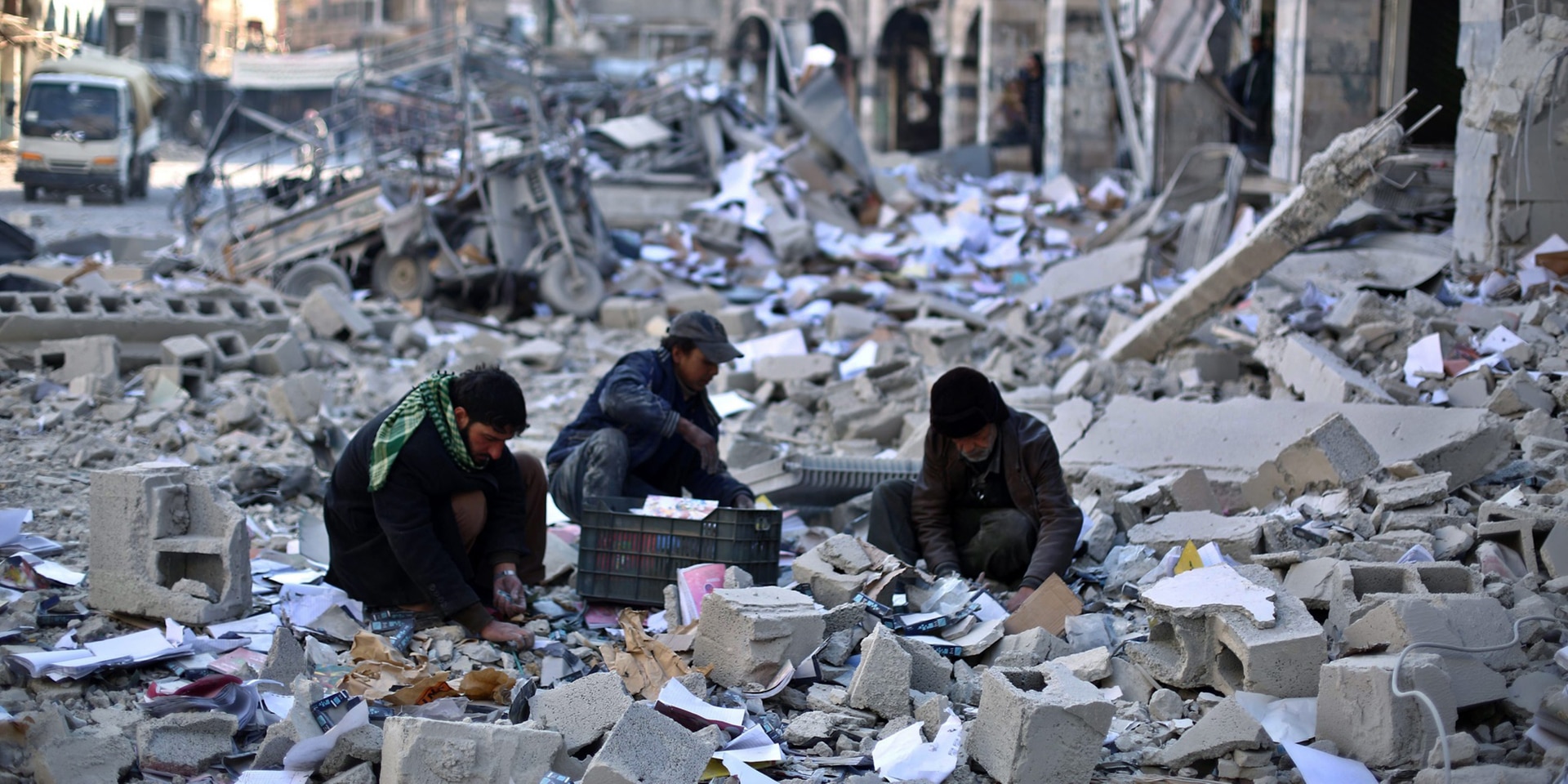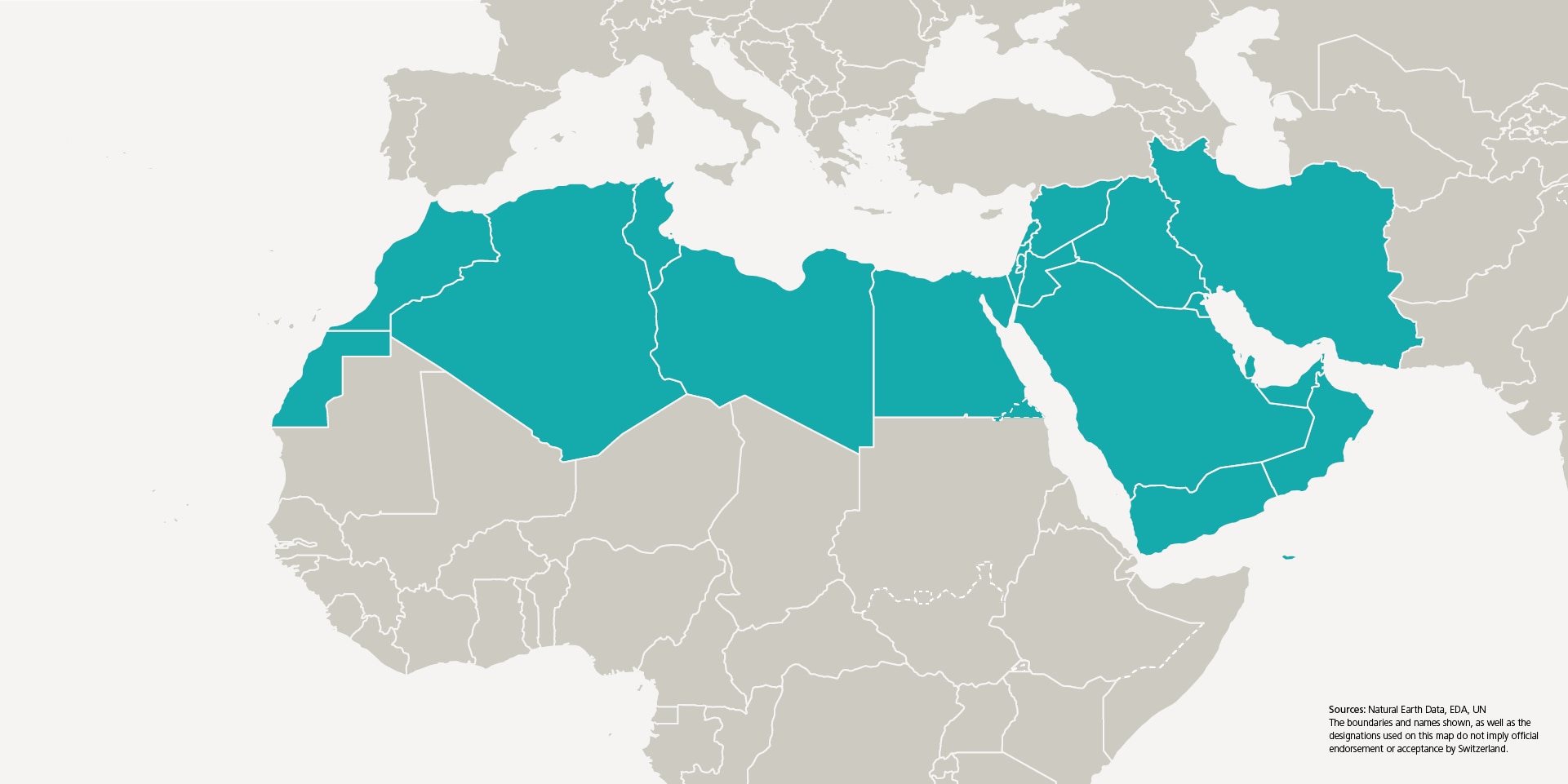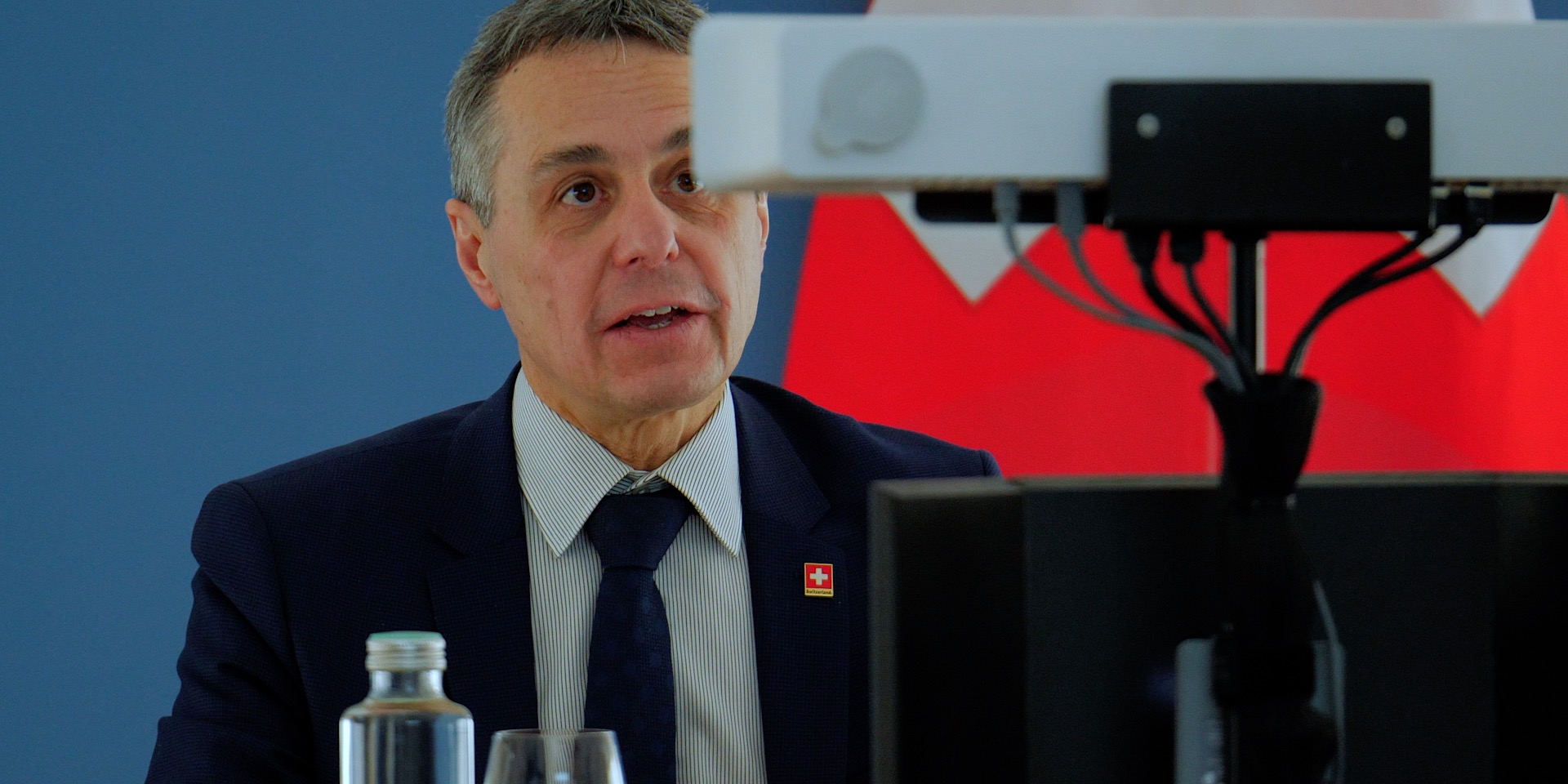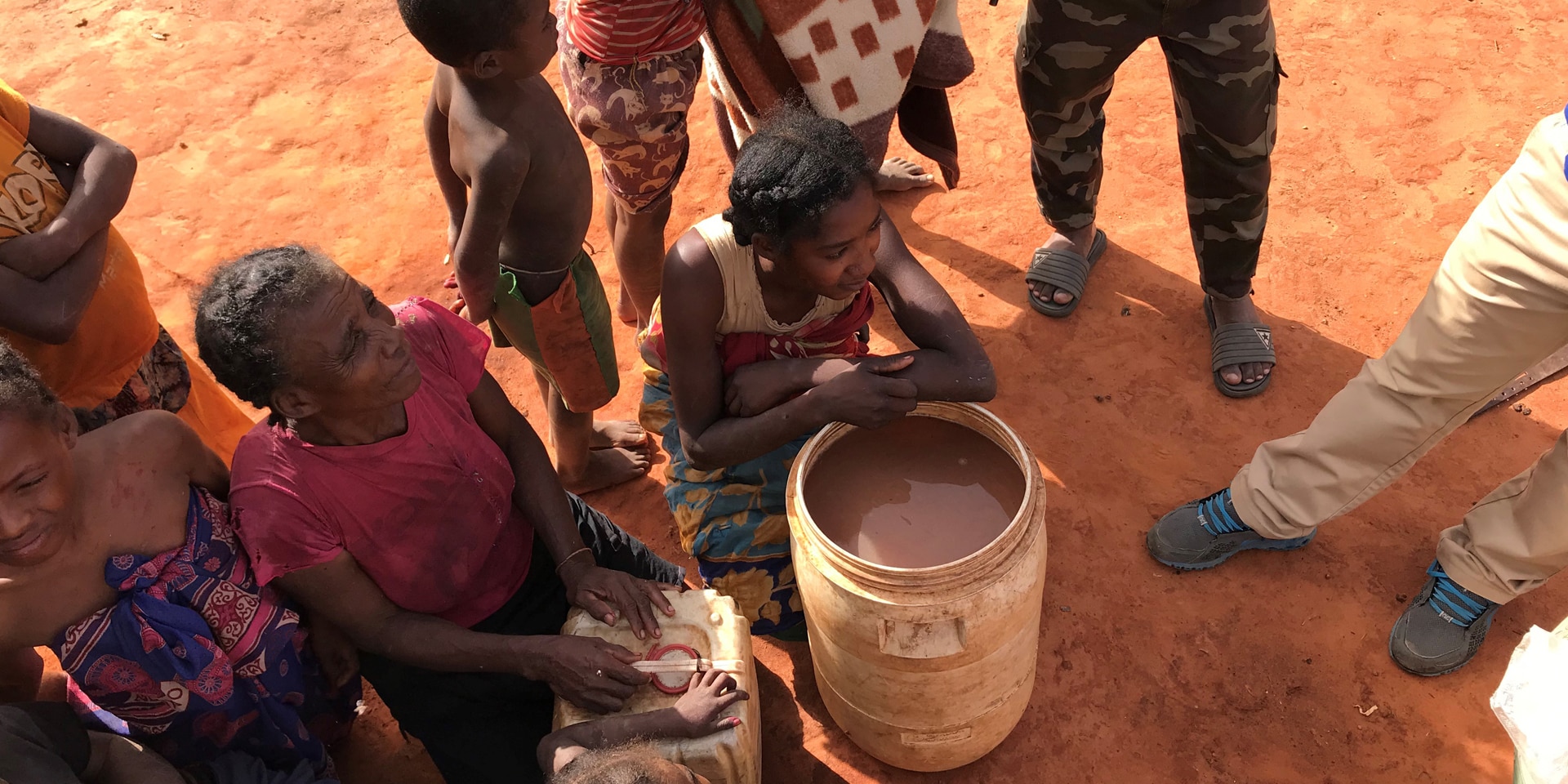10 years of the conflict in Syria: Switzerland commits to peace and helps with 60 million of francs
Switzerland remains fully committed to the search for a political solution to the Syrian conflict. The decade-long war has left Syria and the region facing a humanitarian crisis of unprecedented proportions. On 30 March, the Fifth EU–UN Conference on Syria took place in Brussels. At the meeting, Deputy State Secretary Johannes Matyassy announced that Switzerland will provide the Syrian people in Syria and the region with CHF 60 million in aid.

Syria – a humanitarian crisis of unprecedented proportions. On the outskirts of Damascus, Syrian men sift through the rubble of a building destroyed in an air strike. © Keystone
The human toll of the Syrian crisis comes in many forms. Mariam, her six-year-old daughter and two younger sons move from one camp to the next. She has lost her home, has been recently widowed and is nine months pregnant. Like many others, Mariam has money worries too. The protracted conflict has also left many hungry and thirsty; 10.5 million people are forced to spend up to 25% of their income on meeting their basic water needs. In Syria, restricting access to food and water is used as a weapon of war. At the same time, medical facilities and humanitarian aid workers are routinely targeted by the parties to the conflict, in serious contravention of international humanitarian law.
The Syrian conflict, which has been ongoing since 2011, has caused one of the largest humanitarian crises of our time. The civilian population continues to suffer from the devastating consequences of the armed conflict. The COVID-19 pandemic and the economic crisis have compounded the problems that the population already faces. The humanitarian situation is precarious and humanitarian needs continue to rise. Today, 13.4 million Syrians require humanitarian assistance, compared to 11 million in 2020. The challenge this presents for the humanitarian community is daunting.
High-level conference on support for the Syrian population and the region
For the fifth consecutive year, the UN and the EU organised a high-level conference to address the precarious humanitarian situation in Syria and the region. During the meeting, which was held on 30 March, the international community reiterated its commitment to providing political and financial assistance for efforts to reach a political solution to the Syrian conflict and to meet the needs of the civilian population.
Since 2011, Switzerland has supported the affected population in Syria and the region. It has provided over CHF 522 million, making it the biggest humanitarian undertaking in Switzerland's history. Switzerland has pledged 60 million Swiss francs. These funds will be used to provide emergency aid, facilitate access to essential services, and back efforts to protect the population and their livelihoods. In his statement at the virtual Fifth EU–UN Conference on Syria, Deputy State Secretary Johannes Matyassy declared that "Humanitarian aid must continue, while adapting to current realities." Given the protracted nature of the conflict and evolving needs, Switzerland will also use the funds to support efforts aimed at strengthening the resilience of the population.
As the host state of the UN peace process, Switzerland will continue to play its part in the search for a political solution to the conflict. It also remains committed to respecting and promoting international humanitarian law and fighting impunity. As Matyassy reaffirmed, "We will not spare any effort in helping to set Syria back on a path towards peace."
Commitment to the region as a whole
The devastating effects of the conflict also exact a toll on Syria's neighbours. More than 5.5 million Syrians have sought refuge in surrounding countries. This is why Switzerland's response extends beyond Syria's national borders.
The Swiss Cooperation Programme 2019–22, which covers Syria as well as neighbouring Jordan, Lebanon, Iraq and Turkey, aims to protect conflict-affected persons and alleviate their suffering, promote peaceful co-existence and improve the prospects of the civilian population. Efforts are concentrated on four key areas: protection and migration; education and income; conflict prevention and peace promotion; and water and sanitation. The programme links international cooperation with migration policy and highlights Switzerland's active engagement in conflict prevention and peace promotion.
MENA Strategy and Syria – three strategic objectives
Switzerland has a direct interest in promoting peace, human rights, stability and the protection of people in need both in Syria and across the region. These are a thematic priority of the Federal Council's MENA (Middle East and North Africa) Strategy. This document, approved on 14 October 2020, sets out Switzerland's foreign policy priorities for the entire Middle East and North Africa region.
The three strategic objectives of the MENA Strategy for Syria are:
1. Peace, security and human rights
2. Humanitarian aid
3. Sustainability
Peace, security and human rights
To defuse tensions and promote stability and peace, Switzerland deploys peace policy instruments, including good offices such as mediation between the parties to the conflict. As the host state of the Geneva-based UN peace process, Switzerland is committed to finding a political solution to the conflict and to ensuring the involvement of civil society.
Humanitarian aid and sustainability
Switzerland supports people in need by providing emergency aid, protecting the civilian population, and their livelihoods, and facilitating their access to essential services. Switzerland works to build the resilience of the population so that they become less dependent on humanitarian aid.



